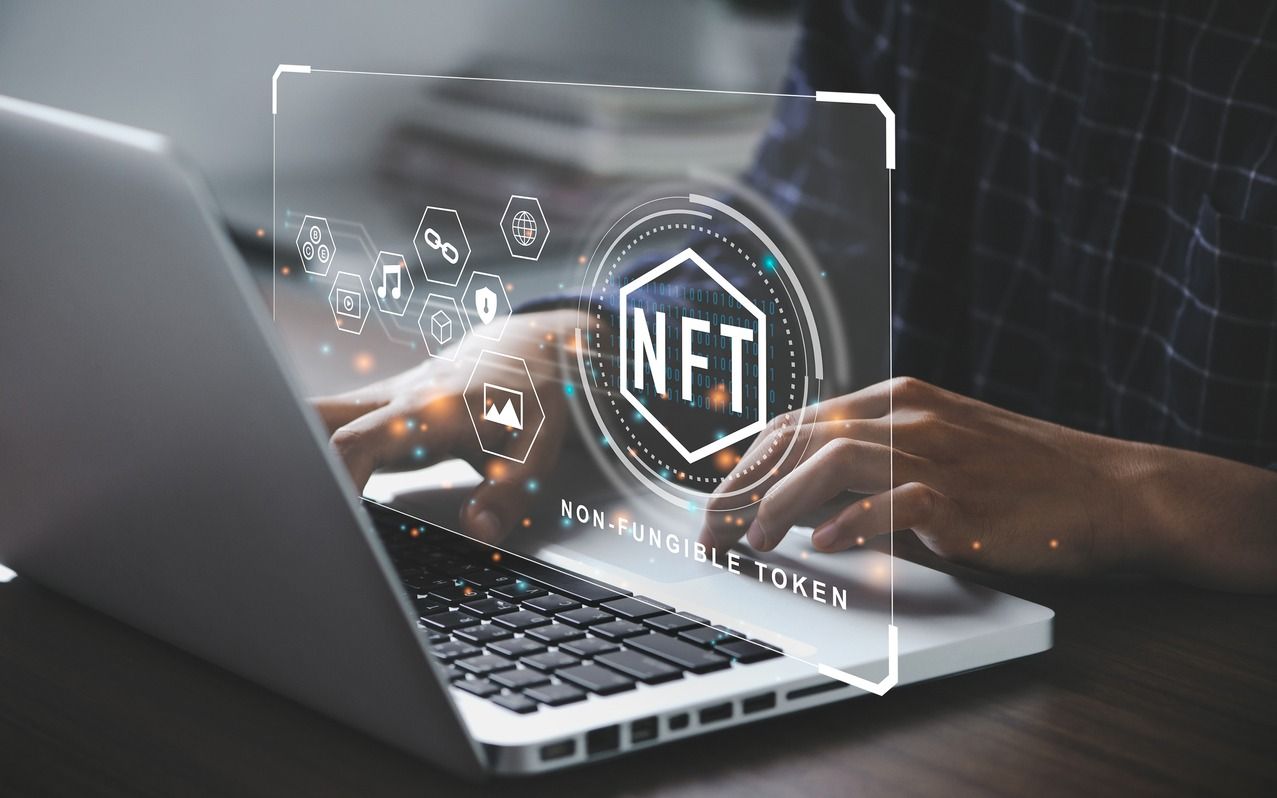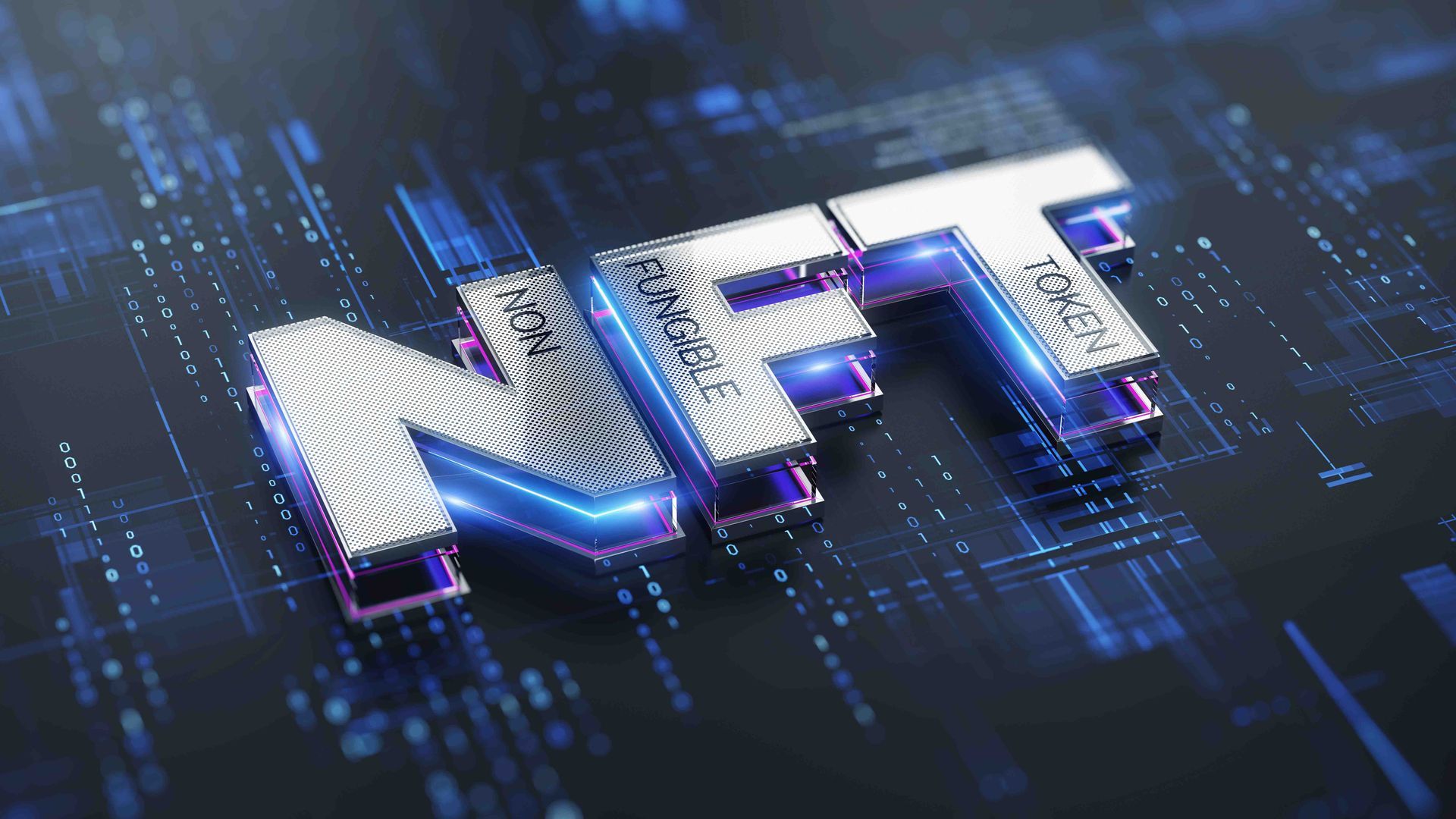What Is NFT Technology? Everything You Need to Know

Are you intrigued by the digital revolution taking place right before your eyes? It’s okay if you feel like you’re lagging behind – the world of technology moves at a lightning-fast pace! Take, for example, Non-Fungible Tokens, or NFTs.
They’ve quickly taken the digital realm by storm, creating new opportunities for artists, entrepreneurs, and yes, even digital marketing agencies. If lead generation for digital marketing agencies is your bread and butter, then understanding NFT technology is crucial.
Understanding NFTs: The Basics
The NFT universe may seem complicated initially, but we’ll simplify it. Non-Fungible Tokens (NFTs) are digital assets that represent real-world objects. Think about artwork, music, real estate, and more – anything unique can be tokenized.
Unlike Bitcoin or other cryptocurrencies, NFTs cannot be exchanged on a like-for-like basis. Every NFT is unique (non-fungible, in other words) with distinguishable specifications.
The Technology Behind NFTs and Blockchain
NFTs are a fruit of the fascinating tree that is blockchain technology, the same revolutionary system powering cryptocurrencies such as Bitcoin and Ethereum. To truly comprehend the significance and
potential of NFTs, it’s essential to understand the underlying technology that makes them possible.
Blockchain, in essence, is a decentralized digital ledger that records transactions across multiple computers in a way that makes them virtually tamper-proof. This decentralization and security are what allow blockchain-based currencies to operate without the need for a central authority, such as a bank.
NFTs are recorded on a blockchain, similar to these cryptocurrencies. However, there’s a key difference: while cryptocurrencies are fungible, meaning each unit is the same as every other unit (one Bitcoin is always equivalent to another Bitcoin), NFTs are non-fungible.
This means that each NFT is unique and can’t be exchanged on a like-for-like basis.
When an NFT is created, or “minted,” it’s accompanied by metadata that defines its characteristics and distinguishes it from every other token. This metadata can include details about the asset the NFT represents, the creator of the NFT, and its current and past owners. This information is then stored on the blockchain and is permanently associated with that token.
As a result, every NFT serves as a verifiable proof of authenticity and ownership for the asset it represents. It’s like having a tamper-proof digital certificate of authenticity that can’t be forged or disputed.
While NFTs can theoretically be minted on any blockchain that supports smart contracts (executable contracts with agreement terms written directly into the code), Ethereum has been the most popular choice so far. The Ethereum blockchain natively supports NFTs through a special type of smart contract known as ERC-721.
This native support, combined with Ethereum’s widespread adoption and robust community, has made it the go-to platform for creating and trading NFTs.
However, it’s worth noting that other blockchains like Binance Smart Chain and Flow are also making strides in the NFT space, offering alternatives that may be more energy-efficient or user-friendly.
The Role of NFTs in Digital Marketing
NFTs, aren’t just shiny digital baubles; they’ve become powerful tools in the hands of forward-thinking digital marketers.
When thinking about how NFTs fit into digital marketing agency lead generation, it’s crucial to grasp that these unique tokens represent a novel paradigm in digital ownership, scarcity, and authenticity.
NFTs can serve as the foundation for innovative marketing strategies. They are capable of adding fresh, exciting dimensions to product development, creating unique digital products that simply wouldn’t be possible in the physical realm. This can provide a fantastic hook for attracting prospective leads and stimulating their interest in your offering.
Furthermore, NFTs can serve as a beacon for community building. They can act as a digital flag, a rallying point around which passionate communities can gather. This ability of NFTs to spur community engagement can drive brand loyalty and foster a sense of belonging among your prospects, strengthening their connection to your brand.
Additionally, NFTs can significantly enhance brand engagement. When you create an NFT of a unique digital product or experience, you’re not just selling an asset; you’re selling a story, a piece of your brand.
This story-telling aspect of NFTs can be leveraged to capture the imagination of your prospects, leading to increased brand engagement.
Unlocking Success with NFTs: Practical Uses
While NFTs have undoubtedly made headlines in the art world, they’re not limited to digital paintings and GIFs. Astute digital marketers have been quick to identify the potential of NFTs as drivers of success.
One of the practical uses of NFTs in marketing is the creation of branded NFT merchandise. This can range from virtual collectibles, like digital trading cards featuring your brand, to more immersive experiences, like VR meet-and-greets with a company spokesperson.
These unique, branded digital assets can serve as effective touchpoints for engaging with your audience and enticing new leads.
Another innovative application of NFTs in digital marketing is tokenizing exclusive experiences or privileges. Imagine offering an NFT that grants the holder a special discount on your services, or an NFT that includes a one-on-one consultation with a top executive in your agency.
These unique, exclusive experiences can significantly enhance your brand’s perceived value, encouraging more leads to engage with your agency.
Risks and Considerations
It’s important to remember that while NFTs are potentially transformative, they’re not without risks and considerations. As with any emerging technology, thorough research and understanding are required before jumping into the NFT bandwagon.
If you’re considering creating or investing in NFTs, legal advice might be necessary. The world of NFTs is still a bit of a Wild West when it comes to regulations, and you wouldn’t want to inadvertently step on the wrong side of the law.
Additionally, while the possibilities offered by NFTs are indeed exciting, they shouldn’t overshadow the other crucial elements of your digital marketing strategy.
Remember, NFTs are just one piece of the puzzle, albeit a very shiny and attention-grabbing one. It’s essential to maintain a balanced approach, integrating NFTs into your existing strategy in a way that complements and enhances your overall marketing objectives.
Wrap Up
There’s no doubt that
NFT technology is redefining the boundaries of digital ownership, presenting intriguing opportunities for digital marketing agencies.
As we journey deeper into the digital age, innovative technologies like NFTs will become increasingly integral to lead generation strategies. Staying informed and adaptable is key to thriving in this ever-evolving landscape.
Disclaimer: The information on this website and blog is for general informational purposes only and is not professional advice. We make no guarantees of accuracy or completeness. We disclaim all liability for errors, omissions, or reliance on this content. Always consult a qualified professional for specific guidance.






